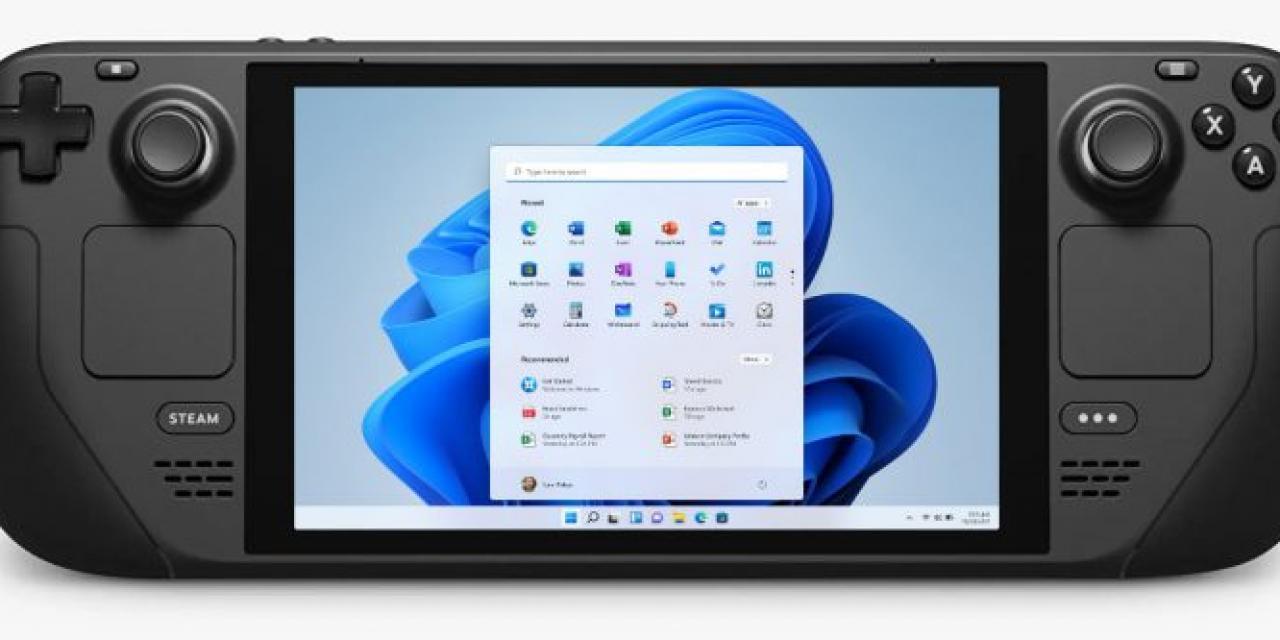
Valve's upcoming Steam Deck portable gaming console will launch with a custom version of Linux, which Valve has been working on for years and previously used as part of its ill-fated Steam Machine initiative. But the Steam Deck is going to be exceedingly hackable. That means it'll be able to run not only a wide range of applications, but potentially other operating systems too. One of the ones that Valve is keen to get working, is Windows 11.
The Steam Deck is effectively a micro-PC in its own right, powered by an AMD Zen 2 APU with onboard RDNA2 graphics, 16GB of RAM, and NVMe storage at various capacities. For a handheld device, it's exceedingly powerful, easily capable of playing Esports games and AAA games at great detail settings with its 1280 x 800 resolution screen.
All of that will make playing games on Linux a cinch. Windows 10 is already in the works at Valve, and now Steam Deck Engineer, Greg Coomer, has confirmed Windows 11 support is being consider too.
"There’s work looking at TPM just now. We’ve focused so much on Windows 10, so far, that we haven’t really gotten that far into it. Our expectation is that we can meet that," he said in a statement.
It's the TPM, or Trusted Platform Module, which is so problematic there. It's not like Zen 2 can't support it, but whether the Steam Deck platform can. if it's on the table, then the little handheld could run almost anything, and may even be able to dual boot various operating systems from its built-in storage.
Would you be interested in running Windows on the Steam Deck? Or will you be sticking with the base Linux install?
Source: Videocardz








